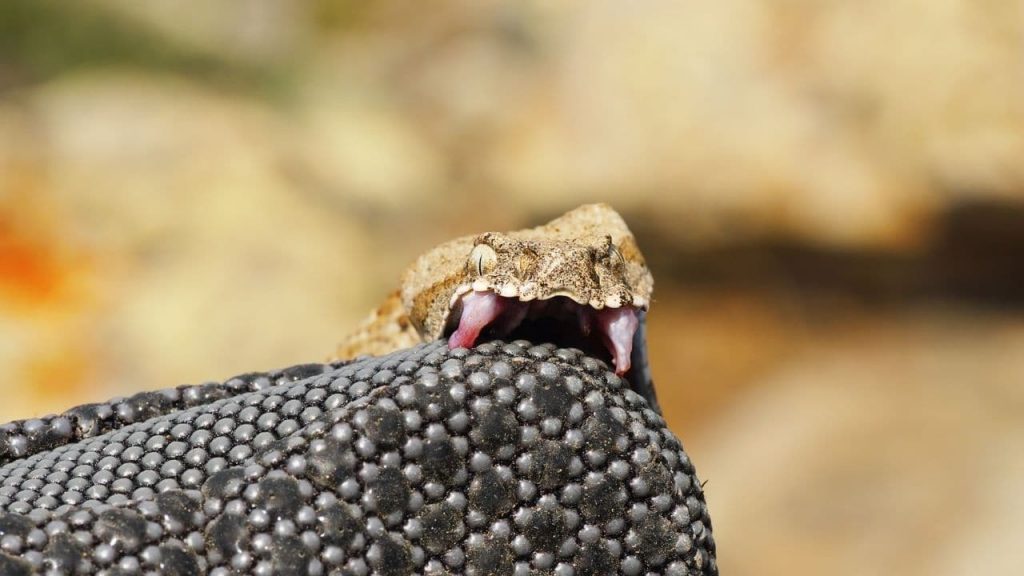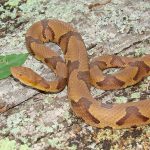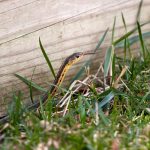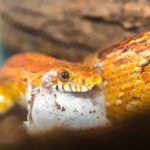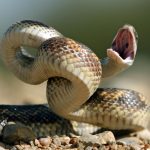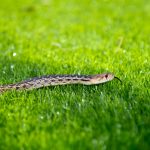Why do snakes bite themselves? This odd behavior of snakes has long been a mystery, leaving many people wondering why they would do such a strange thing. This article seeks to unpack the mystery behind why snakes bite themselves and the possible explanations for this behavior. We will look at scientific theories and research, as well as anecdotal evidence, to better understand why snakes bite themselves and what this behavior might mean.
Types of Snake Bites
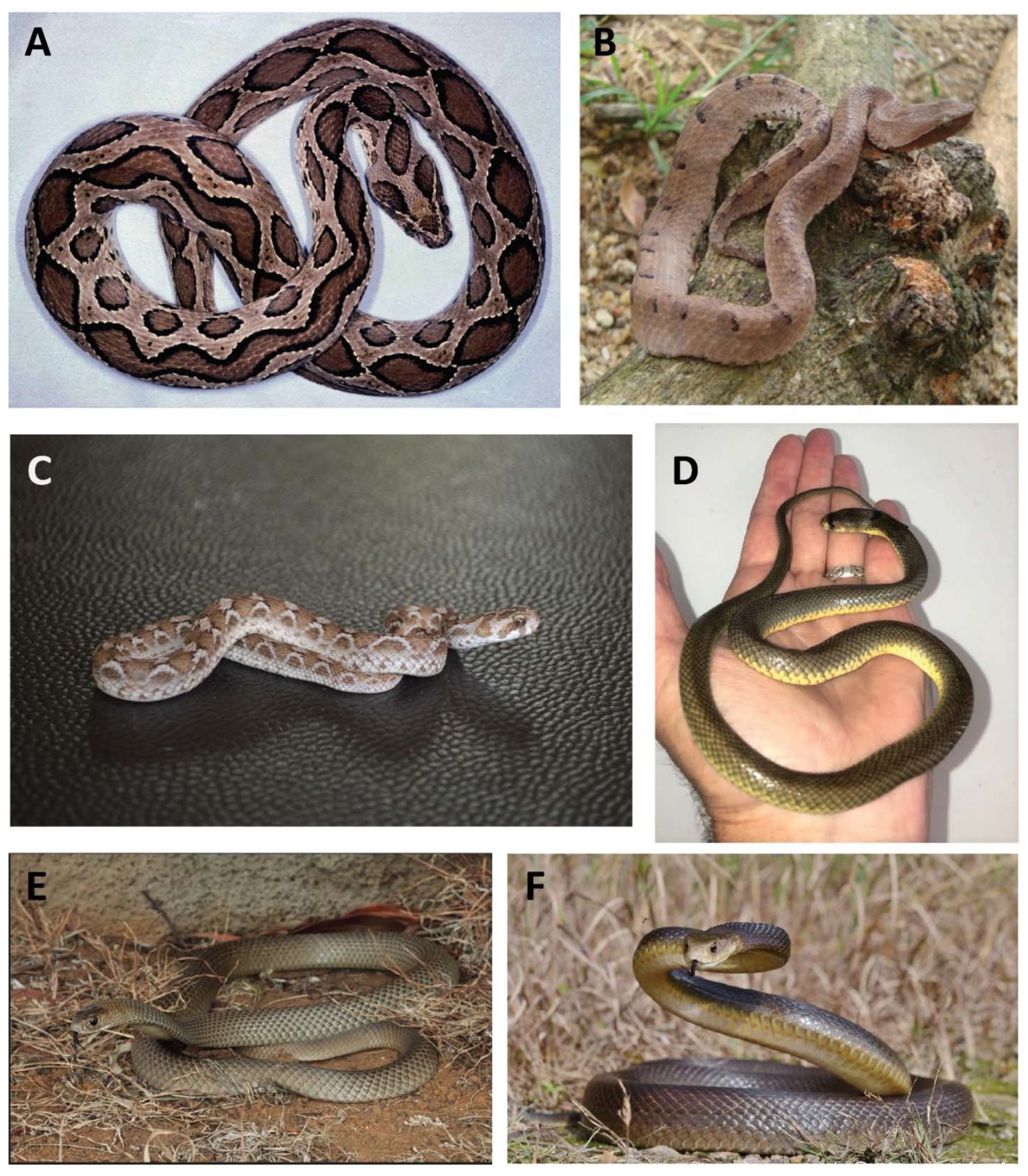
1 Defensive Bite
A defensive bite occurs when a snake feels threatened or startled. This is the most common type of bite and usually causes little to no damage. The snake will usually coil its body and strike quickly, but not hold onto the victim.
2 Aggressive Bite
An aggressive bite is more serious and occurs when a snake is provoked or feels trapped and cannot escape. This type of bite is usually deeper and more painful, and the snake may hold onto the victim for a while before releasing.
Reasons Behind Snake Biting Itself
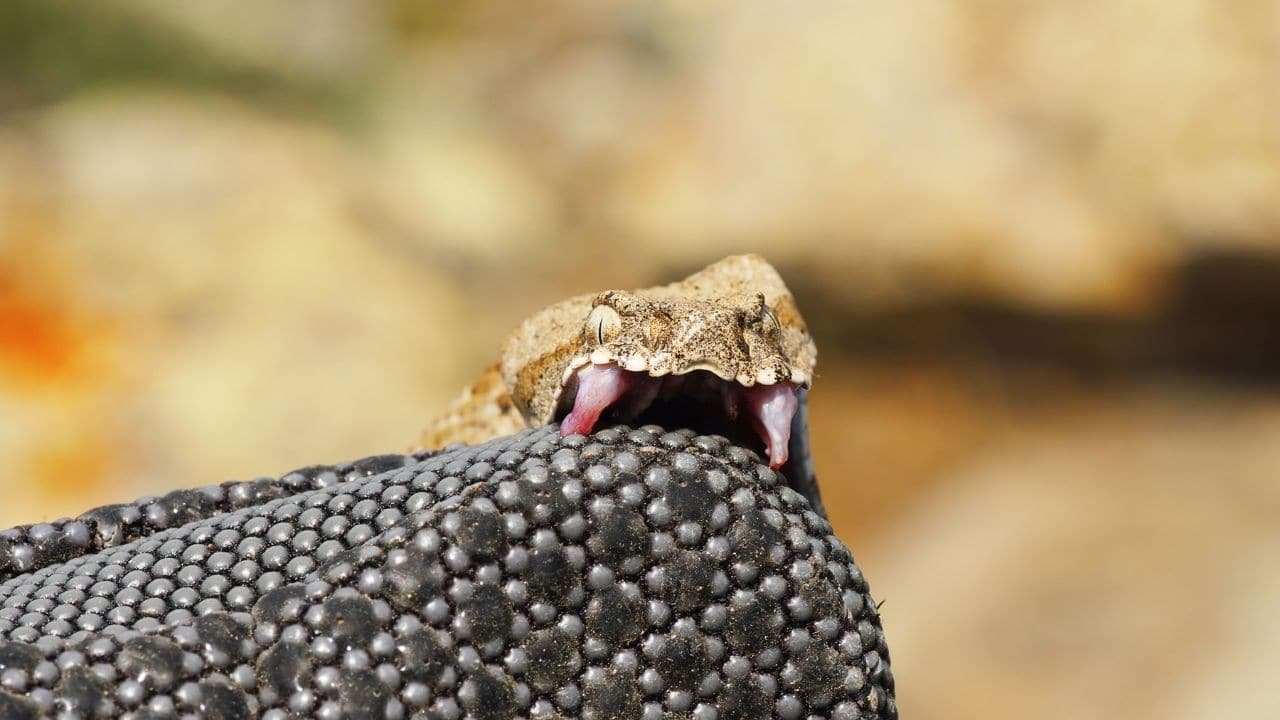
Stress
Stress is a common factor in snakes biting themselves. It can be caused by too much handling, overcrowding, and a lack of privacy. If a snake is not able to hide or retreat from stressors, it will often bite itself.
Injury
A snake may also bite itself due to an injury. If a snake is hurt, it will often try to clean the wound by biting the area around it. This is a natural behavior that helps the snake to heal itself.
Hunger
Hunger can also cause a snake to bite itself. When a snake is hungry, it may bite itself in an attempt to find food. This is especially common in snakes that are unable to find food in their natural environment.
Tasting
Tasting is another reason why snakes may bite themselves. A snake will often bite itself to get a sense of its surroundings. This behavior is often seen in snakes that are unfamiliar with their environment.
Impact of Snake Biting Itself
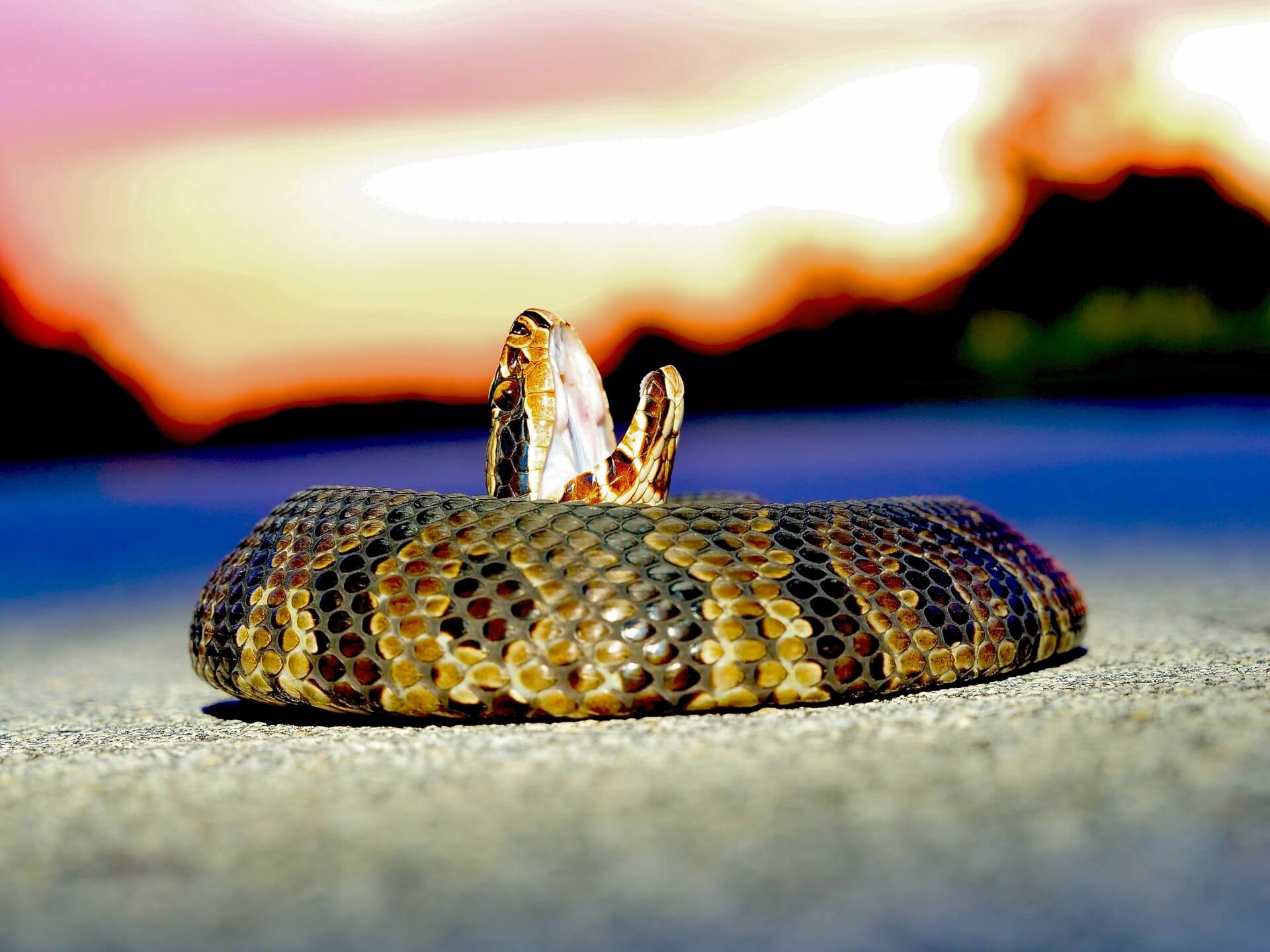
| Impact | Description |
|---|---|
| Injury | The most common impact of a snake biting itself is injury. This can range from minor abrasions to serious bites that can lead to infection. |
| Behavioral Changes | The snake may become agitated or aggressive after it has bitten itself. This can lead to changes in its behavior, such as striking out at other animals or humans. |
| Stress | The snake may become stressed from the pain of the bite and the fear of being bitten again. This can lead to changes in its eating habits, sleeping patterns, and overall health. |
| Parasites | The bite wound can provide an entry point for parasites and other infectious agents. This can lead to serious health problems for the snake. |
| Infection | The bite wound can become infected if not properly treated. This can lead to further complications, including sepsis, which can be fatal. |
Preventing Snake Bites
| Strategy | Description |
|---|---|
| Learn About Snakes | Knowledge of snakes, their behavior and habitat can be used to avoid them. |
| Practice Safety | In snake-inhabited areas, wear sturdy boots, long pants and gloves for protection. |
| Be Aware of Surroundings | Be aware of snakes when walking, climbing or doing other activities in potential snake habitats. |
| Keep Distance | If a snake is encountered, maintain a safe distance and do not attempt to handle it. |
| Check for Snakes | Before putting your hands or feet in a place you cannot see, check for snakes. |
| Be Careful at Night | Be especially aware at night, when snakes are more active. |
| Have a Snake Kit | Keep a snakebite kit in areas that are prone to snake activity. |
Treatment of Snake Bites
| Step | Action |
|---|---|
| 1 | Call emergency services (911). |
| 2 | Keep the injured person still and calm. |
| 3 | Clean the wound with soap and water. |
| 4 | Remove any jewelry or clothing near the bite. |
| 5 | Immobilize the bitten area and keep it lower than the heart. |
| 6 | Cover the bite with a clean, dry dressing. |
| 7 | Do not apply a tourniquet. |
| 8 | Do not try to suck out the venom. |
| 9 | Do not apply heat to the wound. |
| 10 | Do not give the person anything to eat or drink. |
Seek medical help immediately. Keep a record of the type of snake, if possible, and the time of the bite. If the snake is dead, bring it in for identification.
Frequently Asked Questions
What causes snakes to bite themselves?
Snakes may bite themselves due to an underlying medical condition, such as an infection or neurological disorder. Such conditions can cause the snake to become stressed or confused, leading to the animal biting itself. In some cases, a snake may bite itself due to a lack of external prey, causing the snake to attempt to feed on its own body.
What are the Possible Consequences of a Snake Biting Itself?
A snake biting itself can cause an infection, as the bacteria and viruses in the snake’s saliva can enter its own body. It can also lead to tissue damage, as the venom can affect the snake’s own flesh. If the bite is severe enough, it can cause paralysis or death. In some cases, the snake’s teeth may become stuck in its own skin, leading to further injury. Additionally, the snake’s own venom may cause an allergic reaction, resulting in anaphylactic shock.
Is Self-Biting a Common Behaviour Among Snakes?
Self-biting is an uncommon behaviour among snakes, although it is not unheard of. In some cases, snakes may bite themselves out of stress or frustration, especially when kept in captivity. Self-biting can also be a sign of a medical issue, such as infection or neurological problems. If your snake appears to be biting itself, it is important to take it to a veterinarian as soon as possible.
Are there any benefits of a snake biting itself?
In some cases, snakes may bite themselves as a form of self-defense. This behavior is believed to occur when the snake is trying to escape a predator or when it is under extreme stress. Self-biting may also be used to identify prey and as a territorial display. On rare occasions, snakes may bite themselves as a form of self-comfort, much like how humans may bite their nails.
Is there any way to prevent a snake from biting itself?
Snakes may bite themselves when they are stressed, in pain, or confused. It is important to provide a safe and stress-free environment for your snake to help prevent this behavior. Ensure the snake’s enclosure is large enough for it to move freely, and provide the correct temperature, humidity, and lighting. Regular handling and interaction with the snake can also help it stay calm. If the snake is still biting itself, it is best to take it to a vet for a thorough examination.
Conclusion
Snakes biting themselves is a rare and odd behaviour, but not entirely unheard of. In most cases, it is believed to be a result of boredom or lack of food in captivity, and sometimes a sign of ill health. It is important to provide appropriate environmental enrichment and nutrition to captive snakes, and keep an eye out for signs of illness in order to prevent such behaviour.
- Vikash Kumar, et al. “Myths and Facts About Snake Behavior: A Review.” International Journal of Recent Scientific Research, vol. 10, no. 5, 2019, pp. 16168–16172.
- Takashi Tokuda, et al. “Self-Biting Behavior of Pythons and Its Possible Significance.” Journal of Ethology, vol. 29, no. 2, 2011, pp. 121–125.
